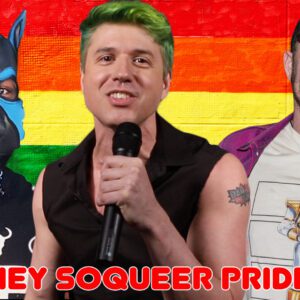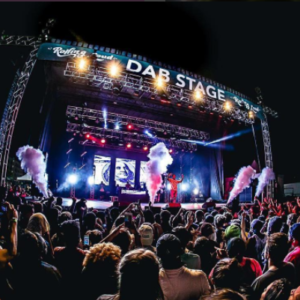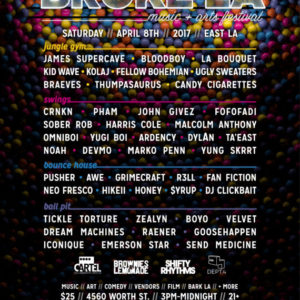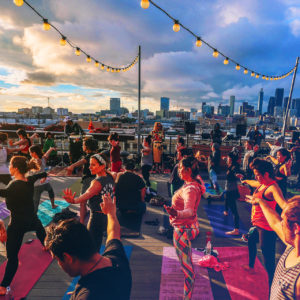 View Winners →
View Winners → 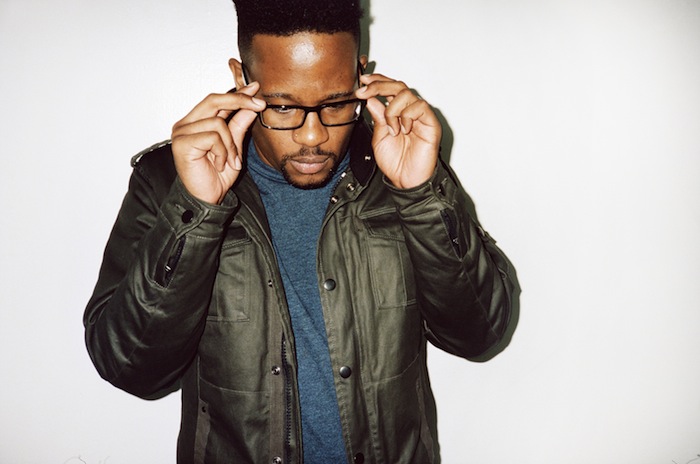
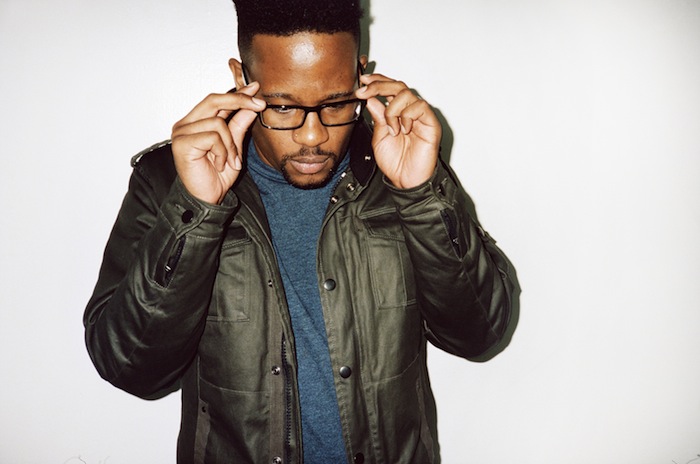
LA-founded and operated Hellfyre Club epitomizes the saying, “You are the company that you keep,” a mantra that holds true within the realms of hip-hop and the street culture associated with it; to be loosely translated, the idea goes hand-in-hand with the ghetto rule-of-thumb stating that “Fate chooses your friends, you choose your family.” Founded and streamlined by Nocando, he surrounded himself with individually like-minded cats that had a niche for writing rhymes over beats in a way that enticed a contextually unfamiliar vernacular that was stylistically familiar at the same damn time. Enter Open Mike Eagle, native Chicagoan, Hellfyre Club member and proud indie rapper. Upon today’s release of his most recent LP, “Dark Comedy,” Open Mike Eagle held it down in the rap game for nearly 20 years – living somewhere between hip-hop’s realms of gangster rap and the eclectic hip-hop that Hellfyre Club has built their foundation off of. We sat down with Open Mike Eagle to talk about what it means to be an indie rapper, the changes in hip-hop and why he should stop reading articles about himself.
LA CANVAS: How’s life?
Open Mike Eagle: Life is treating me well, I’m just sleepy most of the time and I have to come up with a better way to strategize sleep. I take my son to school in the morning, no matter what happens the night before; I had a show in San Bernadino last night and didn’t get home until 3am and he got up early today for whatever reason so I’m operating on about a third of my brain capacity right now. *laughs* But that’s almost typical, and that’s kind of weird to me.
LAC: Well, we only use about 10% of our brain don’t we?
OME: Yeah, but I’m at about a third of that ten, so I’m more like at three right now. *laughs* So guess what I’m going to do after this? Take a big, fat, juicy nap.
LAC: Your album “Dark Comedy” just came out. What are some of the concepts that went into the album, what are some of the stories behind it?
OME: So many stories, man, each song is a different story by itself. I spend a lot of time crafting each song – there’s 13 songs on the album and each ones comes from a really different place. I was probably in a very different mind state for most of them.
LAC: I mean, I figure with a title like “Dark Comedy,” I’d assume it’s some heavy content.
OME: There’s some heavy stuff and there’s light stuff, but there’s also making light of the heavy, vice versa and the juxtaposition of those things. I think there’s where I live: in that space in between what’s serious and what’s not serious because people ask me sometimes if a song is serious or if it’s a joke, and sometimes I don’t know because I think it can be both.
LAC: Because life is like that – all different shades of gray.
OME: Exactlly; and most of the time the things I enjoy from other people’s art are things along that line too. So, I didn’t really answer your question, but truthfully its because I don’t know how.
LAC: So to pick your brain further, what’s the creative process for when you’re writing your music?
OME: The beat that I love is asking me something, and I have to figure out what it’s asking. And then I play it over and over and over again until it reveals itself to me on how I should talk or what I should say, and the songs develop from there pretty much. If it’s a good song, I’ll get a pretty clear picture and then just start writing. Sometimes I’ll write starting from the first bar to the end, other times there’s a lot of note-taking and going back to craft it.
LAC: Do you ever read what bloggers or journalists say about your work?
OME: I do, but I think I do it too much.
LAC: Does it ever get to your head?
OME: It does because my ego is very sensitive, but it’s also very large. And that’s because I’m an American male and I rap for a living. Those things are very tough on an ego — that’s like weight-lifting for a cast iron ego and so I do want to know what people are saying, but even when its good it’s not good the right way or it’s never perfect. I should just stop *laughs*
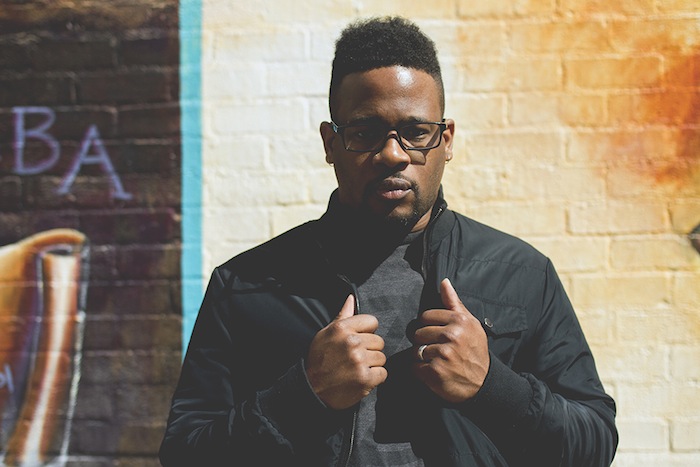
LAC: I always imagined it’s hard for artists to present this body of work and then have someone come out of left field, who doesn’t know you’re coming from, and just interrogate it, whether the resulting critique is good or bad.
OME: What makes it worse is that a lot of times they think they know where I’m coming from. If you as a writer are going to present your interpretation of something is at least state within that’s it’s just a mere interpretation – it’s not the ending definition of anything. There are some songs on this album where I have a hard time dissecting where I was coming from when I wrote it. Some of them are two years old, so the distance between where I was when I was writing it and now where I’m talking about it is very far away – and that’s me talking about my own project, let alone some writer from some publication to interpret it.
LAC: What was your reaction to being called an “indie rapper”? I know with some folks, it might strike a nerve or some kind.
OME: I loved it. I love indie rap. That’s the nicest thing someone could call me, really – there’s a lot of worse ways to describe what we do. I enjoy indie rap as a concept because it’s like how rock music has all these different kinds of rock; you got rockabilly, hog, punk, art rock and there’s just these so many different ways within that genre for artists to express themselves. Ultimately, I think a lot of what me and my friends do is trying to establish that same reality within rap so that we’re not bound by the expectations of one kind of rap music or one kind of rapper, which tends to happen because the media only shows rappers shown on larger media outlets.
LAC: If we’re talking about hip-hop today, who’s really out there dominating mainstream rap? You have TDE and Kendrick Lamar, and then you have like Tyler the Creator and Odd Future.
OME: But even those two, those are better than what has been around for a long time, which was straight up gangster rap, but there a few new voices now, which is cool, but again, it’s just a few. Our angle is closer to that but it’s more unique and more vulnerable. Tyler is kind of shocking a lot of the time, which is his thing. Kendrick is doing his own thing, and I really have nothing bad to say about either of them, but compared to them, what my friends and I (in Hellfyre Club) do are just a lot more open, less macho-man type stuff, you know?
LAC: I mean, you guys are constantly being described a crew that’s “super left-field.”
OME: Which is weird because Nocando is not weird at all. He’s the normal-est rapper I hang around. He listens to a lot of stuff that I can’t listen to because his ear is to the street. So it’s interesting that he gets lumped into that – I mean, I know I’m more left field, and the thing that’s common between us is that I know we’re both vulnerable, but I really don’t think he’s weird or left-field at all.
LAC: You started your rap career mostly associated with a few different crews (Thirsty Fish, Swim Team, Project Blowed) when did you start doing more solo work?
OME: When I was in college I started writing solo songs because I didn’t have a crew back then. Then when I moved out here, I was in Thirsty Fish, then we started the Swim Team, which was a bigger outfit. Somewhere between doing all the collaborations with those two, whenver we got together to hash out ideas for Thirsty Fish — trying to figure out our common bond, even though we were all really different – when I’d go home and do my solo stuff, I’d be super into it. I think I started to find my voice through collaboration – I would start to learn the difference between me and my friends in how we approached things. When I wanted to work on my solo stuff, I could just indulge in this voice that I’m not often able to inject into that situation. When we were making our first record in 2008 (with Thirsty Fish) I was working around a lot of my solo material in that time. I had an EP beforehand but at that point in 2008 I started working on songs for albums.
LAC: How does that dynamic work? You’re talking about you’re able to find your voice among working with so many different people, but to backtrack, how do you put out a single album or project when there’s so many moving parts?
OME: It got to be difficult, to be honest. By the time we got to our second album, I think all of us had kind of matured more in terms of our own individual aesthetic so it became harder to find a place to meet on all concepts or directions because I think we all came into it as solo acts first. With three people it got to be agreeing on a beat was difficult, and agreeing on a concept was difficult, and agreeing on how the hook should be got difficult to the order or how the verses should be broken up. There’s so many phases to have to agree on, but there are some groups that have done it for years and I can admire that.
LAC: What do you have planned for the rest of 2014?
OME: I have some spot dates for now, but no tour booked yet. I have a show here and there, I’m doing the Hop Scotch Festival in September, a show in New York City later in the year. We just did a Hellfyre Club tour, which was great, with some hopes of another one next year. But we’ll see. I’m starting a podcast that I’m excited about, which is still in the works.
*WERK IT OUT, OME.








































































































